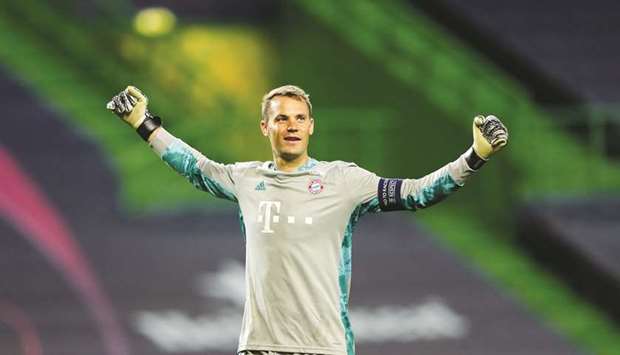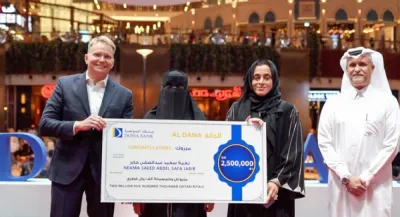Less than six weeks after Bayern Munich won last season’s delayed final behind closed doors, the draw for the group stage of this season’s Champions League takes place today with the threat of the coronavirus pandemic again hanging over the competition.
Bayern were crowned European champions for the sixth time after beating Paris Saint-Germain at an empty Estadio da Luz in Lisbon in August.
The surreal occasion represented a triumph of sorts for UEFA. European football’s governing body succeeded in playing its flagship competition to a conclusion despite the long shutdown caused by the health crisis, but the final rounds were not the same as with packed stadiums.
“A game like this without supporters is not the football that we know,” lamented Bayern coach Hansi Flick. “Perhaps they can be back again in the future.”
Thursday’s draw ceremony will also see the best men’s and women’s player of last season crowned.
UEFA had to ditch plans to stage the event in Athens and instead moved it to its own headquarters in Nyon, Switzerland, where the draw will go ahead without guests.
It is further evidence that, after the battle to get last season finished, things are not about to return to normal in Europe yet, and virus cases are rising again.
But this time the football, it seems, will go on.
The permutations
Both Bayern and PSG will be in the first pot of seeds along with Liverpool, Real Madrid, Juventus, Porto, Zenit Saint-Petersburg and Sevilla, the Europa League winners.
There is the prospect of plenty of enticing match-ups, with Barcelona, Atletico Madrid, Chelsea, Borussia Dortmund and both Manchester clubs all in the second pot, and Inter Milan, Atalanta, RB Leipzig and Marseille among the lower seeds.
Other names to look out for include debutants like Turkish champions Istanbul Basaksehir and French side Rennes, as well as Hungary’s Ferencvaros, a great European name in the 1960s and 1970s who are back in the group stage for the first time in quarter of a century.
A glamour group could look something like this: Liverpool, Barcelona, Inter and Borussia Moenchengladbach.
But the excitement of the draw will be quickly tempered.
First, there is the realisation that – even allowing for the added challenges of a packed calendar this year – almost all the leading clubs should make it through to the last 16 anyway, removing much of the jeopardy from the early games.
Pitfalls ahead
As the pandemic continues to cast a shadow, it seems hard to imagine the final going ahead as scheduled in Istanbul next May in a full stadium.
UEFA experimented with the return of fans when around 15,500 attended last week’s Super Cup between Bayern and Sevilla in Budapest.
“Health is the number one priority but we want to bring hope,” said UEFA president Aleksander Ceferin. He added: “Fans and players are the essential part of football.”
But with rules on large gatherings varying considerably from country to country, UEFA must decide how to approach the issue of crowds attending games in the Champions League and Europa League, the draw for which is tomorrow. UEFA’s current stance is that games will be behind closed doors “until further notice”.
It has adapted its rules. In the face of travel restrictions, it will allow matches on neutral territory. If a club suffers a Covid-19 outbreak, a game can go ahead as long as each team has at least 13 fit players including one goalkeeper. The group stage starts on October 20, more than a month later than usual, and all six rounds of games will be packed into eight weeks.
However, in the event of more delays, UEFA has set January 28 as the deadline to complete the group stage.
Pitfalls lie ahead, but the draw offers a brief return to something like normality.

This file photo taken on August 19, 2020, shows Bayern Munich’s German goalkeeper Manuel Neuer celebrating his team’s third goal during the UEFA Champions League semi-final against Lyon at the Jose Alvalade Stadium in Lisbon. (AFP)


